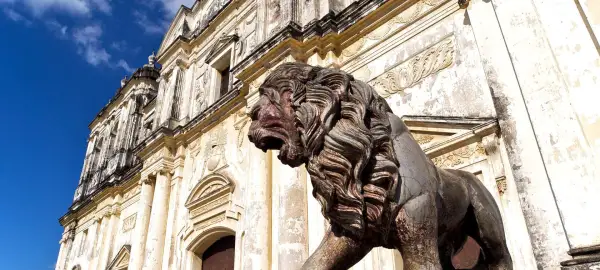Small Group Experiential Travel
Tour Code
MY2 When To Go
Jan, Nov Start
Managua (MGA) End
Guatemala City (GUA) Countries Visited (4)
El Salvador, G...More > Overnight In (9)
Guatemala City...More > Activity Level
2 - Moderate? Tour Type
Cultural? - Overview
- Info & Inclusions
- Itinerary
- Map & Hotels
- Photos
- Dates & Prices
Highlights
- Max Group Size 18
- El Salvador - Joya de Ceren Archaeological Site
- Guatemala - Antigua City & Tikal
- Honduras - Maya Site of Copan
- Nicaragua - Ruins of Leon Viejo
- Birds, volcanoes, indigenous cultures
- Singles friendly (view options for single travellers)
Description
On this 18-day journey through the heart of Central America, we'll uncover the rich cultural heritage and natural beauty of Nicaragua, El Salvador, Honduras, and Guatemala. From the colonial cities and volcanic lakes of Nicaragua to the stunning Pacific coast of El Salvador, we'll explore the unique landscapes and histories that define each country. In Honduras, we'll visit the ancient Mayan ruins of Copán, a testament to the region's rich cultural legacy. We'll also venture into Guatemala, where we'll immerse ourselves in the vibrant markets and traditional communities of the highlands. A highlight of our journey will be a visit to Tikal National Park, where we'll explore the majestic ruins of this ancient Mayan city, set amidst a lush jungle teeming with wildlife. As we travel through this captivating region, we'll engage with local communities, sample delicious cuisine, and gain a deeper understanding of the complex history and cultural heritage that shape the identities of these four nations. With its blend of history, culture, and natural beauty, this tour promises to be a deeply enriching experience.
Price Includes
- Full-time Tour Leader services plus local guide support at several locations.
- Breakfast and dinner daily (hotels and local restaurants).
- All transport, sightseeing and entrance fees for sites noted as 'visited' in the detailed itinerary.
- Gratuities for local guides, drivers, restaurant staff, hotel porters (if available).
- Airport transfers for land & air customers and for early arriving/late departing land & air customers who book their extra hotel nights through us.
Exclusions
- International airfare to/from the tour.
- Tour Leader gratuity, lunches, drinks, personal items (phone, laundry, etc), departure taxes, and international air taxes (if applicable).
- Airport transfers for Land Only customers. Because we arrive in Managua and spend the night in Granada, a 45 min journey, we strongly recommend that you pre-book/pay for a private transfer provided by our local partners at destination, rather than just hiring a local taxi on arrival.
- Optional trip cancellation insurance.
Trip Info
- Seasonality and Weather:
In early November, travellers can expect a pleasant and relatively dry climate in Central America, with the rainy season having largely subsided. The landscape will be lush and green, with vibrant foliage and blooming flowers, creating a picturesque backdrop for exploration. This time of year is ideal for outdoor activities, such as hiking and visiting archaeological sites, as the weather is generally sunny and calm.
In January and February, the dry season will be in full swing, with clear skies and minimal rainfall. The landscape may be slightly drier and more golden in hue, but the scenery will still be stunning. This time of year is perfect for exploring the region's many natural wonders, such as volcanoes, lakes, and jungles, as the dry conditions make trails and roads more accessible. Overall, both periods offer a wonderful experience, with comfortable weather conditions that allow travelers to fully immerse themselves in the region's rich culture, history, and natural beauty. - Transport and Travel Conditions:
Road transport by private air-conditioned motor coach, 12-30 seats depending on ultimate group size (see 'group size').
The countries' roads are generally good though we do have some long (though scenic) road journeys. Numerous nature/site walks and walking tours on uneven surfaces.
Our difficulty level "2" rating refers to the above-mentioned busy days, walking tours on uneven terrain, lack of handrails (public and elsewhere, ie shower stalls), and fatigue that can be caused by heat and humidity.
Am I suitable for this tour? Please refer to our self-assessment form - Activity Level: 2
These are particularly busy tours that feature a lot of moving around, sometimes by train and short journeys on local transport. Walking tours of towns and cities are leisurely but you should be prepared to be on your feet for several hours. Some of our cultural trips that occur at high altitude and/or require greater independence with baggage handling (at hotels, airports, train stations) also fall into this category.
To learn more about the Activity levels, please visit our tour styles page. - Accommodation:
Well-located, heated / air-conditioned, mid-range (3 star) hotels with en suite toilet and bath throughout (probably shower only). Single rooms are limited and likely smaller than doubles. Hotel porter service is sometimes available (see 'Inclusions') though you should be independent with your luggage, especially at airports. Some hotels have outdoor swimming pools. - Staff and Support:
Tour Leader, driver/s, and local step-on guides at various locations. - Group Size:
Maximum 18 (plus Tour Leader)
View / Print Itinerary
- Day 1:Arrival in Managua, Nicaragua - Transfer to GranadaArrival in Managua, Nicaragua; transfer to Granada.*
The scent of tropical blooms mingles with volcanic earth as we touch down in Managua, gateway to a land shaped by fire and revolution. Nicaragua—its very name tells a story of conquest, blending the ancient Nahuatl-speaking Nicarao tribe with the Spanish word "agua," reflecting the countless lakes and rivers that define this remarkable landscape.
We journey south to Granada, where cobblestone streets echo with 500 years of history. As the oldest continuously inhabited European settlement on mainland America, this lakeside jewel has witnessed conquistadors and pirates, revolutions and renewal. Tonight, we settle into our colonial surroundings, preparing for tomorrow's exploration of this living museum where every corner whispers tales of the past.
* As per our usual policies, Land & Air customers will have their transfers to Granada included in their air package; early arrivals will have their transfers included if they book BOTH their air and any extra nights through us. Those booking their own air can purchase a private transfer from us (recommended) or make their own way to our Granada hotel.
Overnight in Granada.
Included Meal(s): Dinner, if required - Day 2:Las Isletas, Masaya Volcano National Park, Laguna del Apoyo, Caterina ViewpointMorning over Lake Nicaragua as we prepare to explore an archipelago born of volcanic fury. Our private boat glides through Las Isletas, where 365 tiny volcanic islands create a natural maze of extraordinary beauty. Each island tells its own story—some inhabited by fishing families whose ancestors have called these waters home for generations, others draped in exotic vegetation that changes with the seasons.
We navigate narrow canals where patient fishermen cast their nets from traditional rafts, their techniques unchanged for centuries. The imposing Fortress of San Pablo emerges from the mists, built in the mid-18th century as Granada's shield against marauding pirates who once terrorized these waters. Restored in 1974, it houses pre-Columbian artifacts discovered on nearby Pensacola Islet—silent witnesses to civilizations that thrived here long before European arrival.
This afternoon, we venture into the heart of Nicaragua's geological drama at Masaya Volcano National Park. Established in 1979 as the country's first national park, this active crater presents a lunar landscape of raw, primal power. We walk the rim where Mayan peoples once made offerings to their gods, understanding why they called this the mouth of hell. The park museum reveals the complex relationship between the Nicaraguan people and their volcanic homeland.
Our day concludes at Caterina viewpoint, where young Augusto Sandino once contemplated Nicaragua's future liberation. From this vantage point above Laguna del Apoyo, we witness the same breathtaking panorama that inspired one of Latin America's most famous revolutionaries.
Overnight in Granada.
Included Meal(s): Breakfast and Dinner - Day 3:Ometepe Island ExcursionToday we will enjoy a full-day excursion to Nicaragua's famous Ometepe Island.*
"Two hills"—Ometepe's name in ancient Nahuatl perfectly captures this hourglass-shaped island where twin volcanoes rise majestically from Lake Nicaragua's depths. Concepción and Maderas, connected by a narrow isthmus, create one of Central America's most dramatic geological formations. Concepción remains restlessly active, its last eruption in December 2007 serving as a reminder that this landscape continues its ancient dance of creation and destruction.
Our 1.5-hour ferry journey across Lake Nicaragua builds anticipation as Ometepe's volcanic silhouettes grow larger. This island sanctuary, somewhat isolated from mainland Nicaragua, preserves mysteries and traditions that time seems to have forgotten. We explore its unique character through a comprehensive tour, discovering how geography has shaped culture in this remarkable setting.
At Santo Domingo Beach, we pause for lunch while contemplating the forces that created this island paradise. The harbour town of Moyogalpa welcomes us with its laid-back charm, where volcanic soil nurtures tropical abundance and local communities maintain connections to both ancient traditions and the rhythms of lake life.
* SOME PAST TRAVELLERS have chosen to do their "own thing" today, choosing to enjoy an unstructured day of relaxation and enjoying the charms of Granada. If this may be something of interest, you can confer with your Tour Leader regarding the nature of today's excursion as part of your decision making.
Overnight in Granada.
Included Meal(s): Breakfast and Lunch - Day 4:Walking tour of Granada - LeonGranada awakens as church bells echo across red-tiled rooftops, calling us to explore one of Latin America's most perfectly preserved colonial cities. Founded in 1524, this architectural treasure on Lake Nicaragua's shores has survived pirate attacks, volcanic eruptions, and civil wars, emerging each time more beautiful than before.
We wander cobblestone streets where Spanish colonial mansions display their original grandeur, their thick walls and interior courtyards designed to withstand both tropical heat and political upheaval. The Parque Central pulses with daily life as it has for centuries—vendors selling traditional foods, families gathering in the shade of massive trees, and the magnificent cathedral standing sentinel over this timeless scene.
This afternoon, we journey north to León, Nicaragua's intellectual and revolutionary heart. Home to the largest cathedral in Central America and birthplace of the nation's beloved poet Rubén Darío, León cradles Nicaragua's passion for poetry and political expression. Founded as Santiago de los Caballeros de León, this Spanish colonial rival to Granada showcases over twelve magnificent churches and countless revolutionary murals that chronicle the struggles and dreams of the Nicaraguan people.
Our visit to the Revolutionary Museum reveals how this historic city became the crucible of 20th-century change, where university students and intellectuals forged movements that would reshape their nation's destiny.
Overnight in Leon.
Included Meal(s): Breakfast and Dinner - Day 5:Leon Walking TourLeón Cathedral's twin towers pierce the morning sky as we begin our exploration of Nicaragua's revolutionary capital. This architectural marvel, the largest cathedral in Central America, took over two centuries to complete. From its rooftop, we survey a city where colonial grandeur meets political passion, expressed in the vibrant murals that transform ordinary walls into galleries of national memory.
The Plaza of Poets honours Nicaragua's literary tradition, while the Plaza of the Revolution commemorates the student uprising that sparked nationwide change. We visit the Rubén Darío Museum, housed in the beloved poet's former home, where personal artifacts reveal the man who elevated Nicaraguan literature to international prominence.
In the Indigenous neighbourhood of Subtiava, the 300-year-old church stands as testament to cultural fusion, where Spanish colonial architecture embraces pre-Columbian spiritual traditions. This sacred space embodies León's complex identity—a city where European conquest met Indigenous resilience, creating something entirely new.
Our afternoon journey takes us to archaeology's haunting reminder of nature's power: the ruins of the original León, established in 1524. When Momotombo volcano erupted in 1610, devastating floods from Lake Managua forced residents to abandoned their city and rebuild at the current location. Walking among these excavated foundations, we witness how geological forces have repeatedly reshaped Central American civilization.
Overnight in Leon.
Included Meal(s): Breakfast and Dinner - Day 6:Leon - Managua, Nicaragua - Fly to San Salvador, El SalvadorWe bid farewell to Nicaragua's poetic heartland and journey to Managua for our flight south to El Salvador, Central America's smallest yet most densely populated nation. This Pacific-facing country presents a dramatic landscape where volcanic peaks rise from narrow coastal plains, creating fertile plateaus that have sustained civilizations for millennia.
San Salvador's origins reach deep into pre-Columbian history, near the site where Pipil peoples established their capital of Cuscatlán. When Spanish conquistadors arrived, the Indigenous inhabitants abandoned their city rather than submit to foreign rule—a defiant act that echoes through El Salvador's turbulent history.
We arrive in a nation forged by volcanic fire, where 23 volcanoes punctuate the landscape—the highest concentration on the American continent. These geological giants have shaped not only the physical terrain but the cultural identity of a people who have learned to live in harmony with the earth's most powerful forces.
Overnight in San Salvador.
Included Meal(s): Breakfast and Dinner - Day 7:San Salvador - Joya de Ceren - SuchitotoEl Salvador's volcanic legacy unfolds before us as we journey through landscapes sculpted by fire and time. The petrified lava rivers from Quezaltepeque volcano's 1917 eruption create an otherworldly tableau, testament to the raw power that continually reshapes this land. We pause at the extinct crater, now crowned with lush vegetation that transforms destruction into beauty.
Our destination is Joya de Cerén, El Salvador's most extraordinary archaeological treasure. Known as the "Pompeii of the Americas," this UNESCO World Heritage Site preserves the only complete picture of daily Mayan life ever discovered. Fourteen hundred years ago, the Laguna Caldera volcano buried this village so quickly and completely that everything remained perfectly preserved—cooking pots still contained beans, sleeping mats lay undisturbed, and footprints marked paths between homes.
Walking through these ancient streets, we witness intimate details of pre-Columbian life impossible to find elsewhere in the Mayan world. Volcanic ash became time's protector, preserving not grand temples or royal palaces, but the everyday existence of ordinary people whose lives were frozen in a single catastrophic moment.
Our day concludes in Suchitoto, one of El Salvador's hidden gems. This former Pipíl capital, which served as the nation's seat of government for fifteen years beginning in 1528, now enchants visitors with cobblestone streets and colonial architecture overlooking the dramatic expanse of Lake Suchitlán and Volcán Guazapa.
Overnight in Suchitoto.
Included Meal(s): Breakfast and Dinner - Day 8:Suchitoto: Indigo Farm & Walking TourThe deep blue of sacred indigo reveals its secrets as we visit a traditional farm where this precious dye continues ancient traditions. While India often receives credit for indigo's origins, Central and South American peoples developed their own sophisticated techniques thousands of years ago—a 6,000-year-old indigo fabric discovered in Peru proves the antiquity of this art.
For the Maya, indigo held sacred significance, reserved exclusively for ceremonial clothing and religious ceramics. We witness the complex process that transforms humble plants into the royal blue that once commanded prices higher than gold, understanding why Spanish colonizers called it "blue gold."
Suchitoto's afternoon walking tour reveals why locals call this the "Antigua of El Salvador." The Santa Lucia Church, constructed in 1853, exemplifies post-colonial architecture at its finest, its facade capturing the optimism of a young nation asserting its independent identity. The town's relaxed atmosphere invites contemplation, its elevated position providing spectacular views over Lake Suchitlán while cobblestone streets echo with centuries of footsteps.
Our tour culminates with a visit to the Casa Museo Alejandro Cotto, the beautifully-preserved home of the acclaimed filmmaker who became integral to Suchitoto's cultural renaissance. Cotto's personal belongings, artwork, and awards remain on display Lonely Planet, along with colonial furniture, religious imagery over 300 years old, and his extensive art collection
Overnight in Suchitoto.
Included Meal(s): Breakfast and Dinner - Day 9:Suchitoto - Ruta de las Floras - AtacoThe morning mist lifts from mountain peaks as we embark on one of Central America's most beautiful journeys—the Route of the Flowers. This scenic highway between Sonsonate and Ahuachapán winds through highland communities where Spanish colonial architecture frames explosion of tropical blooms and ancient cultural traditions flourish in mountain air.
Nahuizalco greets us with Indigenous artisans weaving magic from tule reeds and wicker, their techniques unchanged since pre-Columbian times. Baskets and furniture crowd the streets in vibrant displays that honour generations of craftsmanship. In Salcoatitán, we discover where Central America's first coffee tree took root, the white colonial church standing witness to the agricultural revolution that would define the region's economy.
Juayúa captivates with its famous Black Christ, a sculpture that draws pilgrims from across Central America. This coffee-growing town embodies the perfect marriage of ideal climate and fertile volcanic soil, producing some of the world's finest beans. We visit a working plantation where the complex journey from cherry to cup reveals why El Salvadoran coffee commands such respect among connoisseurs.
Our mountain odyssey concludes in Ataco, where cool highland air and artistic traditions create an atmosphere of creative energy and cultural pride.
Overnight in Ataco.
Included Meal(s): Breakfast and Lunch - Day 10:Ataco, El Salvador - Copan, HondurasSanta Ana emerges from morning shadows as we explore El Salvador's second-largest city, where pre-Columbian foundations support modern coffee-processing facilities. This economic hub demonstrates how ancient agricultural knowledge continues to drive contemporary prosperity, the marriage of traditional cultivation methods with modern technology creating some of the world's most sought-after coffee.
El Tazumal awaits—its Nahuatl name meaning "place of many lakes"—where the largest pyramid discovered in El Salvador rises from tropical vegetation. This archaeological wonder represents the sophisticated urban planning of Maya civilization, its massive stones precisely fitted without mortar, its orientation reflecting complex astronomical calculations that guided agricultural and ceremonial cycles.
Our route to Honduras unfolds through spectacularly lush landscapes where volcanic soil nurtures extraordinary biodiversity. We cross borders where political boundaries seem artificial compared to the natural and cultural continuities that bind Central America together (indeed we transit through Guatemala today en route to Honduras). The charming colonial town of Copán welcomes us with cobblestone streets and Spanish architecture, preparing us for tomorrow's encounter with one of Maya civilization's greatest achievements.
Overnight in Copan.
Included Meal(s): Breakfast and Dinner - Day 11:Copan Site TourDawn illuminates the "Athens of the New World" as Copán reveals why UNESCO granted it World Heritage status in 1980. No other Maya site matches Copán's artistic sophistication, where master sculptors transformed stone into narratives of divine kingship and cosmic order. Massive carved faces emerge from ancient walls, their eyes seeming to follow us through grassy plazas filled with the most intricate monuments ever created by American civilizations.
The Ball Court, Central America's second-largest, echoes with the ghostly sounds of ritual games where sport, religion, and politics intertwined in complex ceremonies that determined royal succession and agricultural cycles. Nearby, the Hieroglyphic Stairway—King Smoke Shell's masterpiece—ascends 63 steps bearing several thousand glyphs that chronicle Copán's royal dynasty in stone.
The world-renowned Sculpture Museum transports us into the Maya worldview, where architectural and freestanding sculptures reveal how this sophisticated civilization understood their universe. Each carving reflects astronomical observations, mathematical calculations, and spiritual beliefs that guided one of humanity's most advanced societies.
This afternoon, Copán's colonial streets invite exploration, where Spanish architecture frames the same mountain views that inspired Maya astronomers and artists centuries before European arrival.
Overnight in Copan.
Included Meal(s): Breakfast and Dinner - Day 12:Copan, Honduras - Antigua, GuatemalaThe road to Antigua unfolds through landscapes where Maya, Spanish, and contemporary cultures have layered their stories across volcanic terrain. We enter Guatemala's crown jewel—perhaps Spanish America's most outstanding preserved colonial city—where natural beauty and historic monuments create an atmosphere of timeless enchantment.
Founded in 1543, Antigua served as the seat of Spanish colonial government for the entire Kingdom of Guatemala, ruling territories from southern Mexico to Costa Rica. Earthquakes repeatedly challenged this mountainous capital, and residents repeatedly rebuilt with greater magnificence, until the devastating tremor of July 29, 1773—the day of Santa Marta—finally forced relocation to safer ground.
Today's Antigua emerges from that destruction transformed into romantic perfection. Bougainvillea-draped ruins and carefully restored colonial mansions create a city of unmatched charm and beauty. Surrounded by the green hills and three volcanoes—Agua, Fuego, and Acatenango—this UNESCO Cultural Heritage site represents the pinnacle of colonial urban planning and architectural achievement.
Spanish Colonial style permeates every corner: houses with massive wooden doors opening onto flower-filled courtyards, churches displaying baroque facades, and plazas where fountains provide gathering places for communities that maintain traditions spanning centuries.
Overnight in Antigua.
Included Meal(s): Breakfast and Dinner - Day 13:Antigua Walking TourCobblestone streets guide us through Antigua's living museum, where every corner reveals architectural treasures and historical layers. The ornate La Merced church showcases baroque craftsmanship at its finest, while the ruins of the Capuchinas convent whisper stories of cloistered nuns who chose spiritual devotion over worldly concerns. The Santo Domingo Monastery complex demonstrates how religious orders accumulated both spiritual and temporal power in colonial society.
The impressive central plaza draws us into Antigua's social heart, where massive trees provide shade for vendors selling traditional snacks and cold drinks—continuations of commercial activities that have animated this space for centuries. The Palacio de los Capitanes recalls when Spanish governors administered vast territories from these halls, while the Colonial Art Museum preserves artistic treasures that reveal the sophisticated cultural life of Spanish America.
Santiago Cathedral, damaged and rebuilt numerous times by earthquakes, reportedly contains the remains of conquistador Don Pedro de Alvarado, the man who conquered Guatemala for Spain. Its current facade reflects centuries of architectural evolution, each reconstruction adding layers to the historical narrative.
Free time this afternoon allows personal discovery of Antigua's countless restaurants, markets, and cafes, where the whole city functions as an open-air museum of colonial life.
Overnight in Antigua (dinner on your own this evening).
Included Meal(s): Breakfast - Day 14:Antigua - Chichicastenango - Panajachel & Lake AtitlanThe highland road to Chichicastenango winds through landscapes where Indigenous Maya communities maintain traditions that predate Spanish conquest by millennia. "Chichi" explodes with color and commerce during its world-famous Thursday and Sunday markets, where vendors create Central America's largest outdoor bazaar selling everything from handwoven textiles to medicinal plants, carved masks to grinding stones.
Originally serving only the K'iche Maya region, this market's fame now attracts buyers from across Guatemala and beyond. The 400-year-old church of Santo Tomás rises atop a pre-Columbian platform, its 18 steps representing the Maya calendar's months. Shamans still perform ancient rituals here, burning incense and candles in ceremonies that seamlessly blend Christian and Indigenous spiritual traditions.
Our journey continues to Panajachel, beautifully positioned on Lake Atitlán's shores beneath three majestic volcanoes. This lake, formed by volcanic collapse and filled by mountain streams, creates one of the world's most spectacular natural settings. Indigenous communities ring its shores, each maintaining distinct languages, customs, and textile traditions that create a living tapestry of Maya culture.
Overnight in Panajachel.
Included Meal(s): Breakfast and Dinner - Day 15:Lake Atitlan Boat Tour - Guatemala CityLake Atitlán's shimmering waters reflect the volcanic peaks of San Pedro, Atitlán, and Tolimán as our boat carries us to Santiago de Atitlán, the lake's most fascinating village. Here, Tzutuhil Maya people wear traditional tocoyal headdresses requiring 12 metres of colorful material, their techniques unchanged since pre-Columbian times.
Built on Volcano Atitlán's slopes and surrounded on three sides by water, Santiago was once the Tzutuhil nation's capital before becoming an important Spanish missionary outpost. Today's population of nearly 15,000 maintains traditional ways of life, their vibrant costumes and ancient customs creating one of Guatemala's most authentic Indigenous communities.
Coffee plants bloom white across the mountainsides while hibiscus and wildflowers paint the landscape in brilliant colours. We encounter Maximón, the enigmatic post-Columbian Maya folk deity who blends Christian Saint Simon with Mayan underworld god Maam, representing the complex religious syncretism that characterizes Guatemala's spiritual landscape.
Towering volcanoes provide a dramatic backdrop for this cultural immersion before we reunite with our transport for the journey back to Guatemala's capital.
Overnight in Guatemala City.
Included Meal(s): Breakfast and Dinner - Day 16:Guatemala City - Fly to Flores (Tikal)Guatemala City's morning bustle fades as we board our flight to Flores, gateway to Tikal and the Petén rainforest. This journey north carries us from highland volcanic terrain to the lowland jungles where Maya civilization reached its greatest heights.
Flores itself enchants as a colonial island city connected to the mainland by a narrow causeway. Dense with red-roofed buildings and narrow cobblestone streets, this historic settlement centers around a Spanish plaza and ancient church. The city's restaurants and colonial architecture make it far more than just a launching point for Tikal—it's a memorable destination showcasing the Spanish colonial legacy in Guatemala's jungle frontier.
Tonight we rest in anticipation of tomorrow's encounter with possibly the most magnificent of all Maya sites, where ancient pyramids pierce the rainforest canopy and howler monkeys announce the dawn with calls that echo across centuries.
Overnight Flores/Tikal.
Included Meal(s): Breakfast and Dinner - Day 17:Tikal Site TourMist rises from the rainforest canopy as we enter Tikal, where five great pyramids create a ceremonial landscape of staggering grandeur. This Maya metropolis, functioning from 500 BC through 900 AD, represents urban planning and architectural achievement that rivals any ancient civilization. The towering temples, crowned with tremendous roof combs, reach toward the sky like stone prayers frozen in time.
The complexity of the central Acropolis palace structures and the intricate chronology of the North Acropolis overwhelm first-time visitors with their sophisticated engineering and artistic mastery. For over a thousand years, aristocratic elites and priests directed armies of architects, builders, craftsmen, and laborers in creating this monument to divine kingship and cosmic order.
We discover ancient temples and stone structures that functioned not just as religious centers but as sophisticated urban complexes where tens of thousands of people lived, worked, and worshipped. Every endeavor enhanced the city's glory, honored the gods, accumulated wealth, and demonstrated the ruling class's divine mandate to their well-disciplined subjects.
Howler monkeys roar in the distance while toucans flash brilliant colors through emerald canopies, reminding us that Tikal thrives not only as an archaeological wonder but as a living ecosystem where ancient stones shelter modern wildlife in one of Central America's most important nature reserves.
Overnight near Tikal.
Included Meal(s): Breakfast and Dinner - Day 18:Flores - Fly To Guatemala CityMorning light illuminates Flores' colonial architecture as we enjoy free time exploring this charming island city. The historic church and Spanish plaza provide perfect settings for final photographs and reflection on our Central American odyssey. Narrow streets invite wandering, their stone surfaces worn smooth by centuries of footsteps, while restaurants offer opportunities to savor regional specialties one last time.
Our flight back to the capital carries us from jungle lowlands to volcanic highlands, retracing the geographical diversity that makes Guatemala such a compelling destination. The aerial view reveals how this small nation encompasses extraordinary variety—from Maya ruins emerging from rainforest to colonial cities nestled in volcanic valleys.
Overnight in Guatemala City.
Included Meal(s): Breakfast and Dinner - Day 19:DepartureOur Central American journey concludes as we prepare for departure from Guatemala City. From Nicaragua's revolutionary poetry to El Salvador's volcanic artistry, from Honduras' Maya masterpieces to Guatemala's colonial treasures, we carry memories of landscapes shaped by fire and cultures forged by resilience.
¡BUEN VIAJE!
Included Meal(s): Breakfast
Regions Visited: Central America
Countries Visited: El Salvador, Guatemala, Honduras and Nicaragua
Countries Visited: El Salvador, Guatemala, Honduras and Nicaragua
*The red tour trail on the map does not represent the actual travel path.
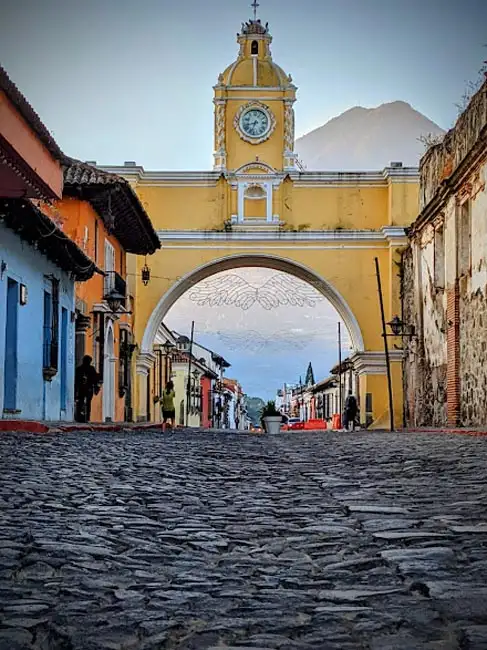
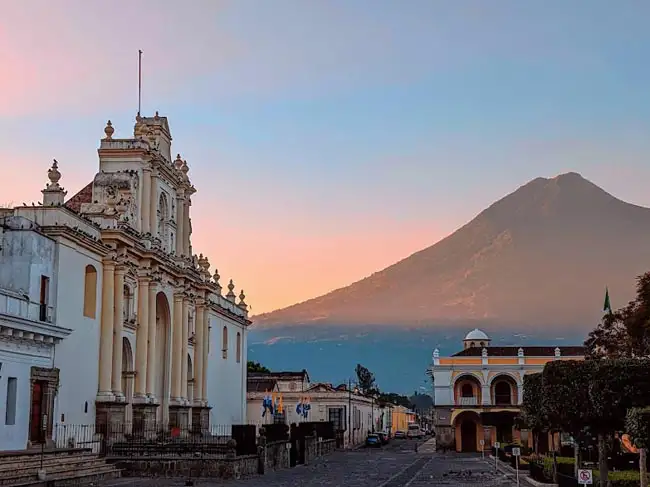
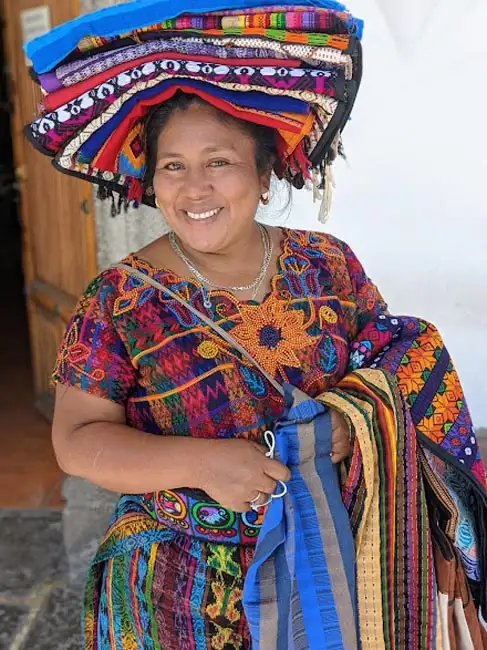
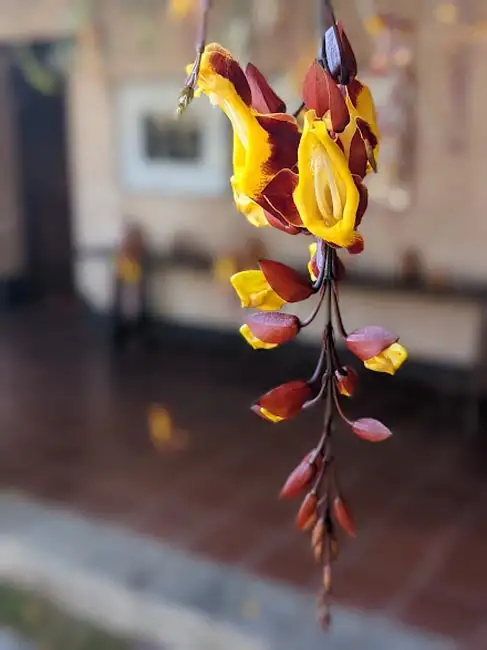
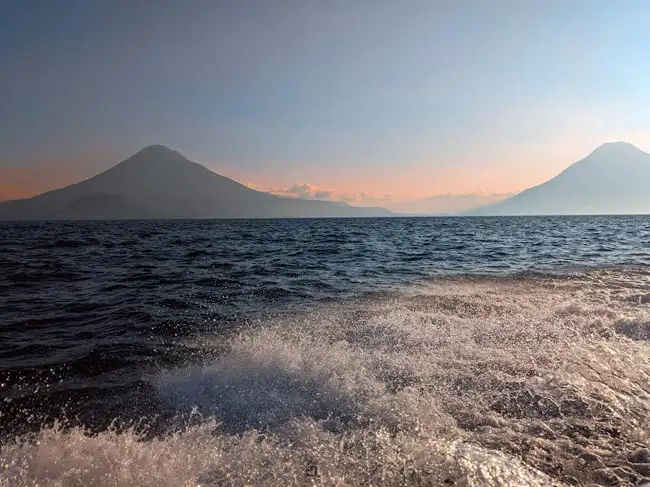
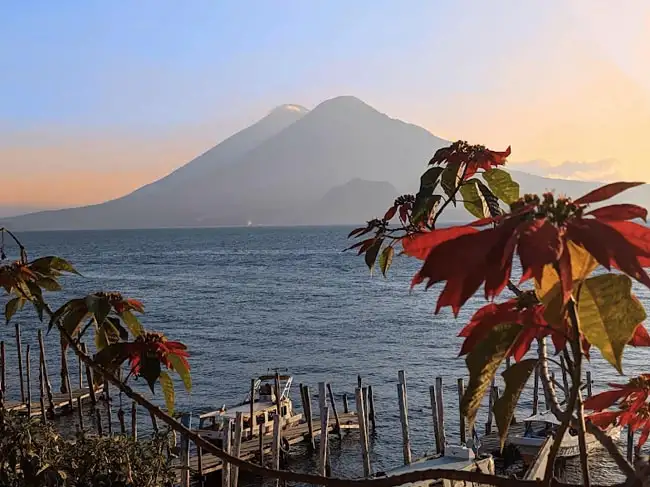
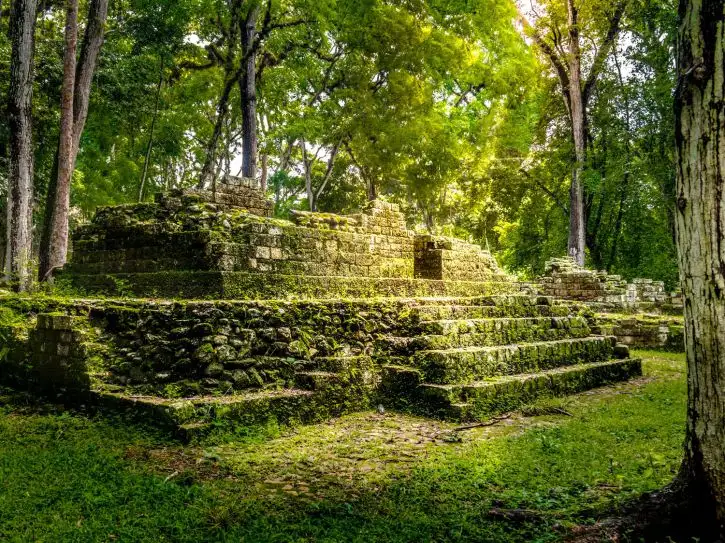
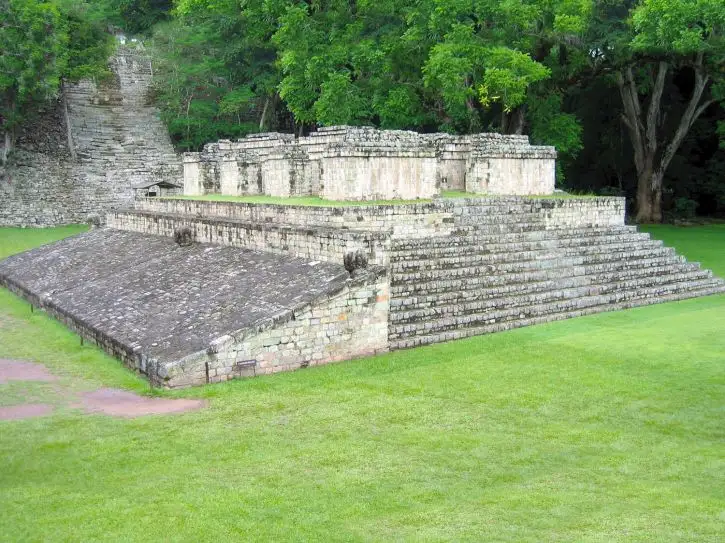
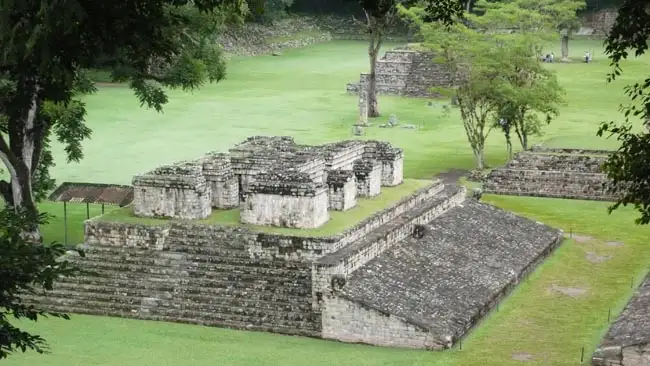
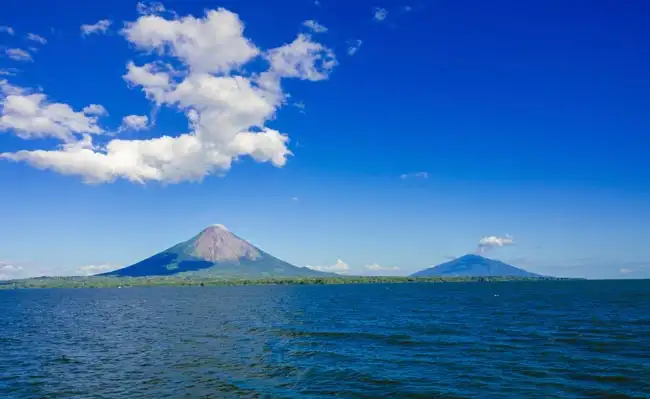
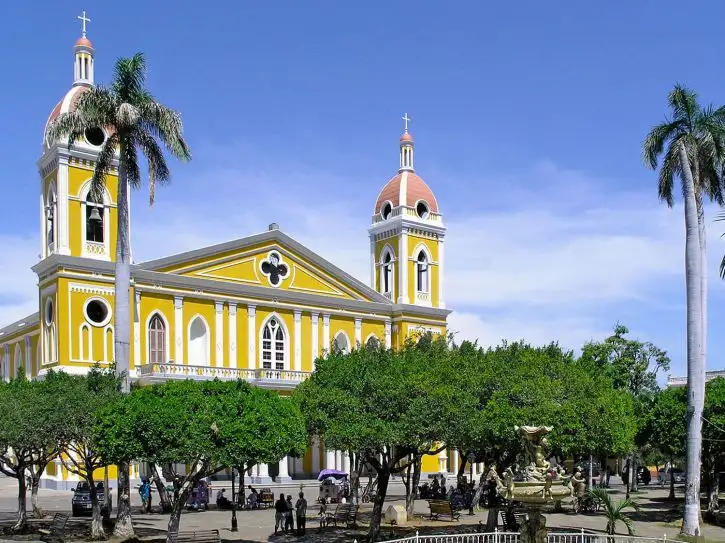
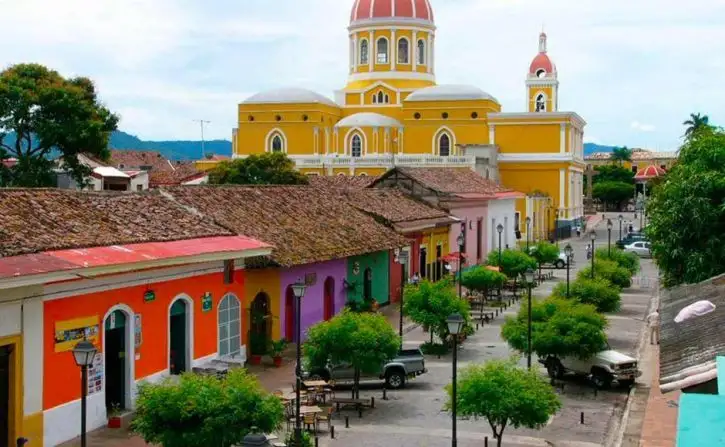
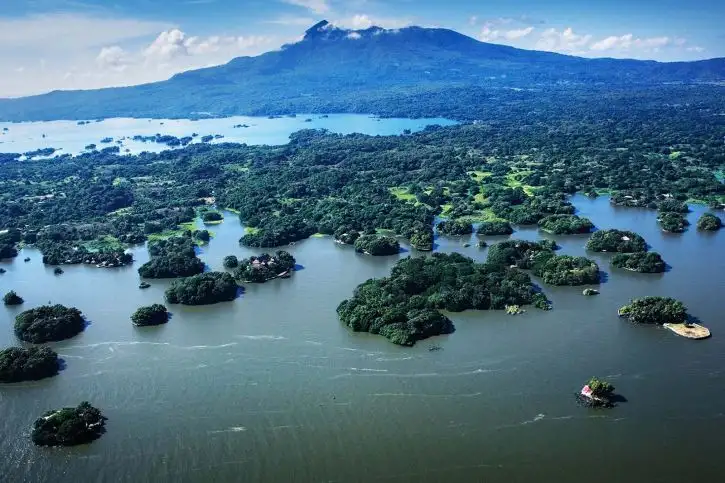
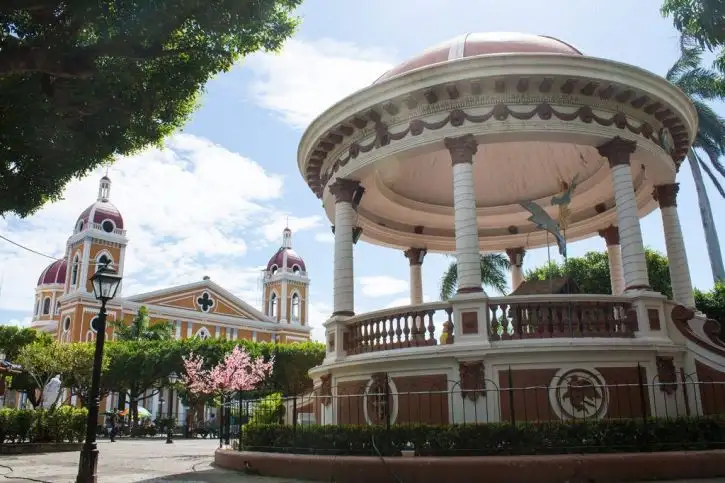
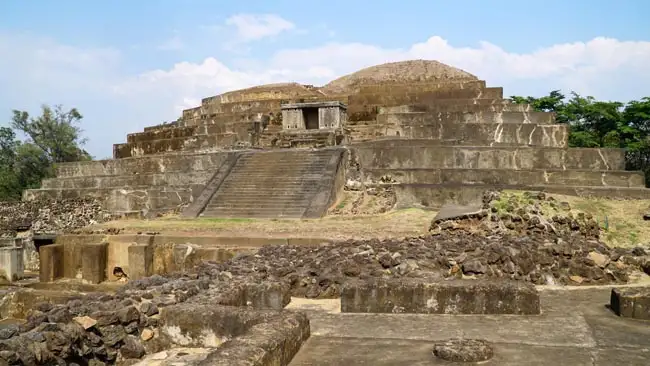
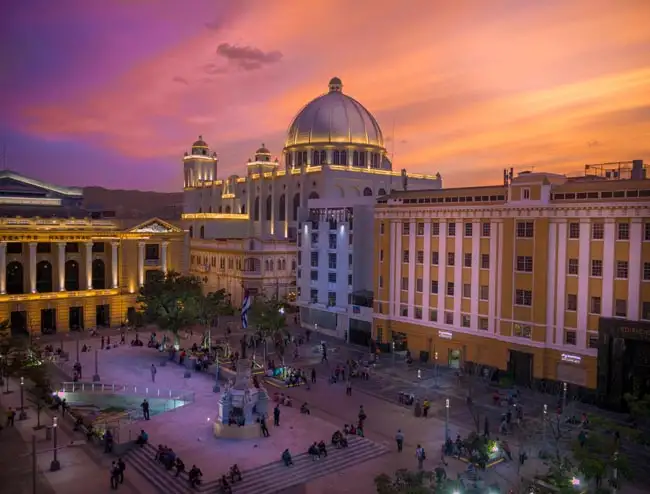
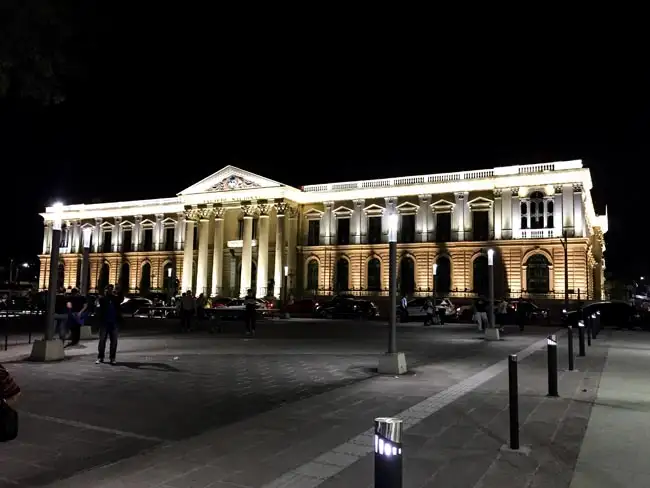
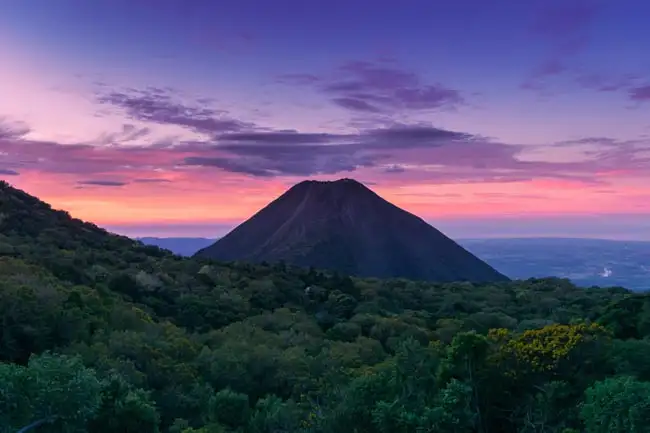
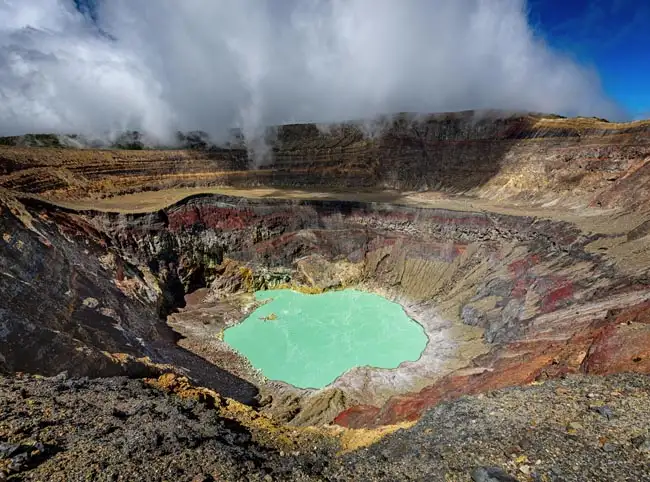
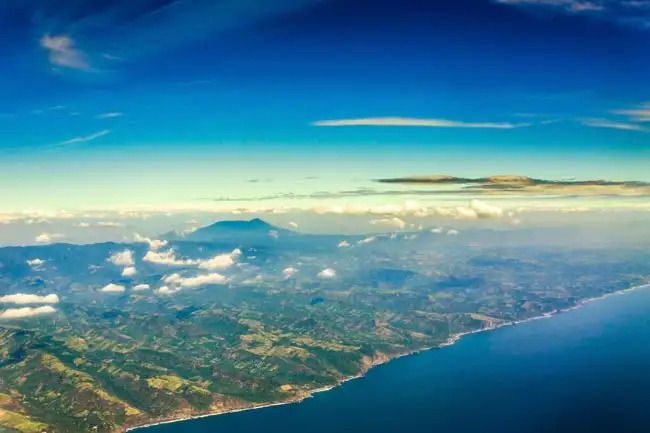

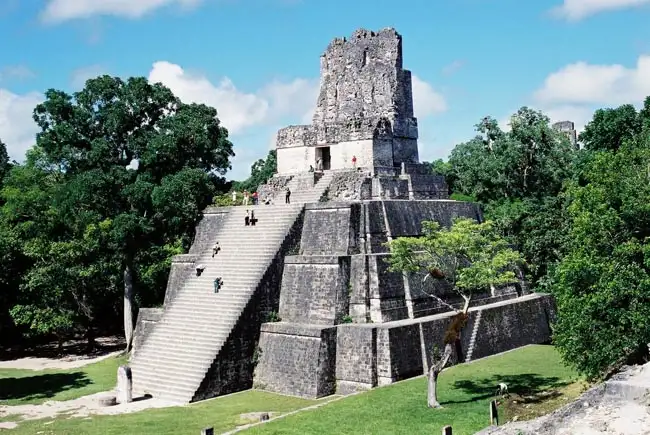
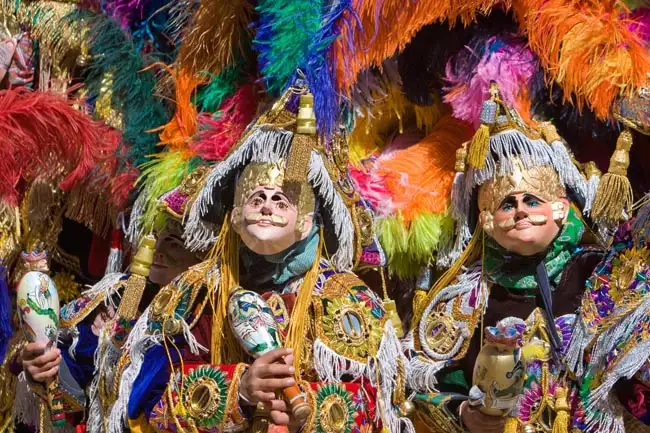
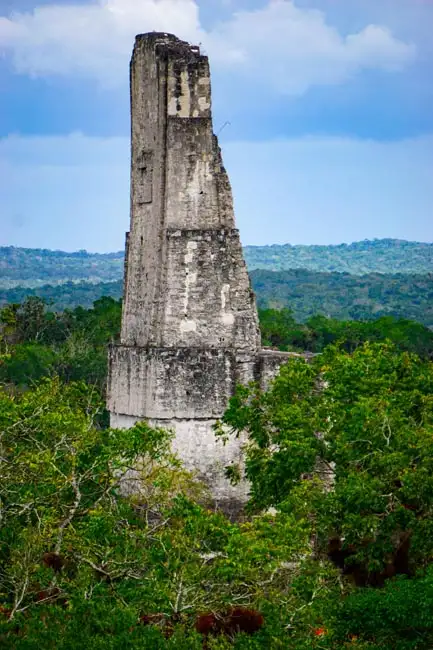

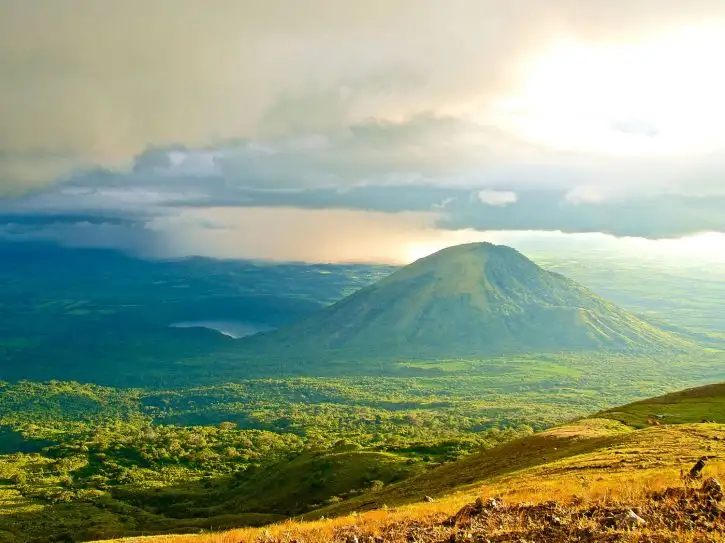
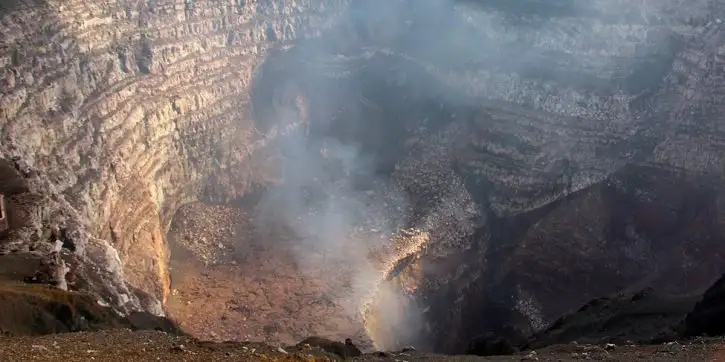
Excellent
Overall Rating
4.7
Extend Your Trip
This tour is part of a series that can be upgraded to make for a longer trip.
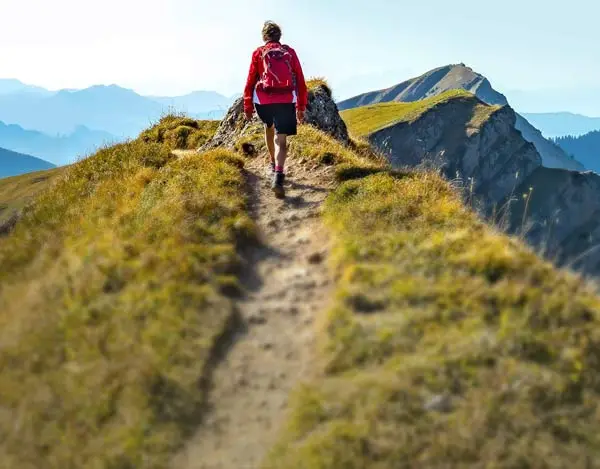
Fast and easy
Book This Tour
Book your unforgettable adventure today! For any questions or advice, don't hesitate to contact us.
Have questions?
1-800-665-3998
- Final payment: Due 90 days prior to departure.
- Deposit: A non-refundable $500 USD Deposit is required at booking.
- Optional Single Supplement: $1400 USD (number of singles limited).
(View options forsingle travellers) - Transfering Tour or Date: Transferring to another tour or tour date is only permissible outside of 120 days prior to departure and is subject to a $100 USD change fee.
(Read our cancellation policy)
Choose your departure date:
Prices below are per person, twin-sharing costs in US Dollars (USD). Pricing does not include airfare to/from the tour and any applicable taxes.
Prices below are per person, twin-sharing costs in US Dollars (USD). Pricing does not include airfare to/from the tour and any applicable taxes.
Frequently Asked Questions
- What is the maximum number of participants on a trip?Most of our tours carry a maximum of 18 participants; some tours (ie hiking tours) top out at 16. In the event that we do not achieve our minimum complement by our 90-day deadline, we may offer group members the option of paying a "small-group surcharge" as an alternative to cancellation. If all group members agree, we will confirm the trip at existing numbers; this surcharge is refundable in the event that we ultimately achieve our regular minimum. If the small group surcharge is not accepted, we will offer a refund of your deposit or a different trip of your choice.
- Can I extend my tour either at the beginning or end? What about stopovers?Yes, you can extend your tour either at the beginning or the end and we can book accommodation in our tour hotel. Stopovers are often permitted, depending on air routing. Stopovers usually carry a "stopover" fee levied by the airline.
- How do I make a reservation? How and when do I pay?The easiest way to make a reservation is via our website; during office hours, you are also more than welcome to contact us by telephone.
A non-refundable deposit is payable at the time of booking; if a reservation is made within 90 days, full payment is required. Some trips require a larger deposit. If international airline bookings require a non-refundable payment in order to secure space or the lowest available fare, we will require an increase in deposit equal to the cost of the ticket(s).
Early enrolment is always encouraged as group size is limited and some trips require greater preparation time.
Once we have received your deposit, we will confirm your space and send you a confirmation package containing your trip itinerary, any visa/travel permit related documents, invoice, clothing and equipment recommendations, general information on your destination(s), and forms for you to complete, sign and return to us. Your air e-tickets (if applicable), final hotel list, final trip itinerary, and instructions on how to join your tour, will be sent approximately 2-3 weeks prior to departure. - What about cancellations, refunds, and transfers?Please review our cancellation policy page for details.
- I am a single who prefers my own room. What is a single supplement?All of our tours have a single supplement for those who want to be guaranteed their own room at each location.
This supplement is a reflection of the fact that most hotels around the world do not discount the regular twin-share rate for a room by 50% for only one person occupying a room. Most hotels will give a break on the price, but usually in the range of 25-30% of the twin-share rate. This difference, multiplied by each night, amounts to the single supplement.
The conventional amount can also vary from country to country and some destinations are more expensive than others for single occupancy. In order to be "single friendly," the supplements we apply are not a profit centre for us and we do our best to keep them as reasonable as possible.
On most tours we limit the number of singles available, not to be punitive, but rather because many hotels allow for only a limited number of singles; some smaller hotels at remote locations also have a limited number of single rooms available.
Please note that most single rooms around the world are smaller than twin-share rooms and will likely have only one bed. - Do you have a shared accommodation program?Yes! If you are single traveller and are willing to share, we will do our best to pair you with a same-gender roommate. Please note that should we fail to pair you, we will absorb the single supplement fee and you will default to a single room at no extra charge.
